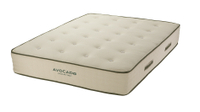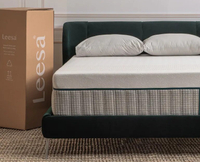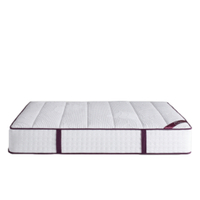What is a non-toxic mattress and how do you spot them? 5 key things to look for
Everything you need to know about non-toxic mattresses for greener sleep
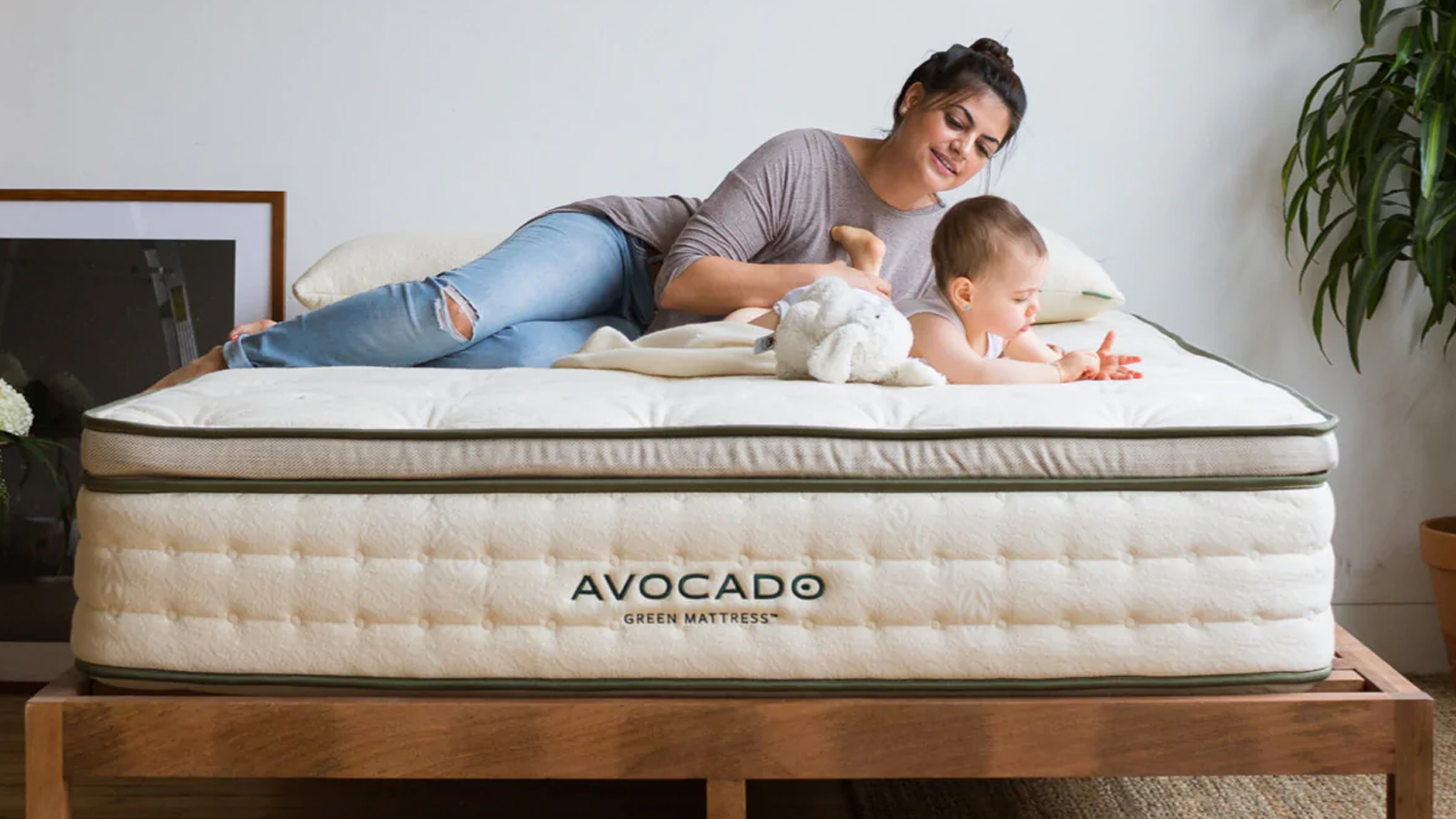
Many of us are turning to non-toxic mattresses in order to improve our sleep quality and overall health. But you may be wondering, what is a non toxic mattress — and how do you spot them?
A non-toxic mattress is primarily made from natural and organic materials and is free of any potentially harmful substances, such as fiberglass. Many of this year's best mattresses for all sleepers are non-toxic and free of nasties, and there are several key things to look for to ensure that your mattress is non-toxic too. One of these is organic certification for specific materials.
Here, we will walk you through what a non-toxic mattress is, how to find them, and outline the key things you should look for when buying a non-toxic mattress. Let’s get started.
What is a non-toxic mattress?
While the best organic mattresses will be devoid of any toxic materials, some mattress brands will rely on a multitude of synthetic materials and chemical adhesives, dyes and flame retardants — such as fiberglass or propylene oxide — in order to deliver the best safety, comfort and support at a lower price. If your mattress cover is removed against manufacturer guidance or becomes damaged, these materials can potentially be harmful to your health.
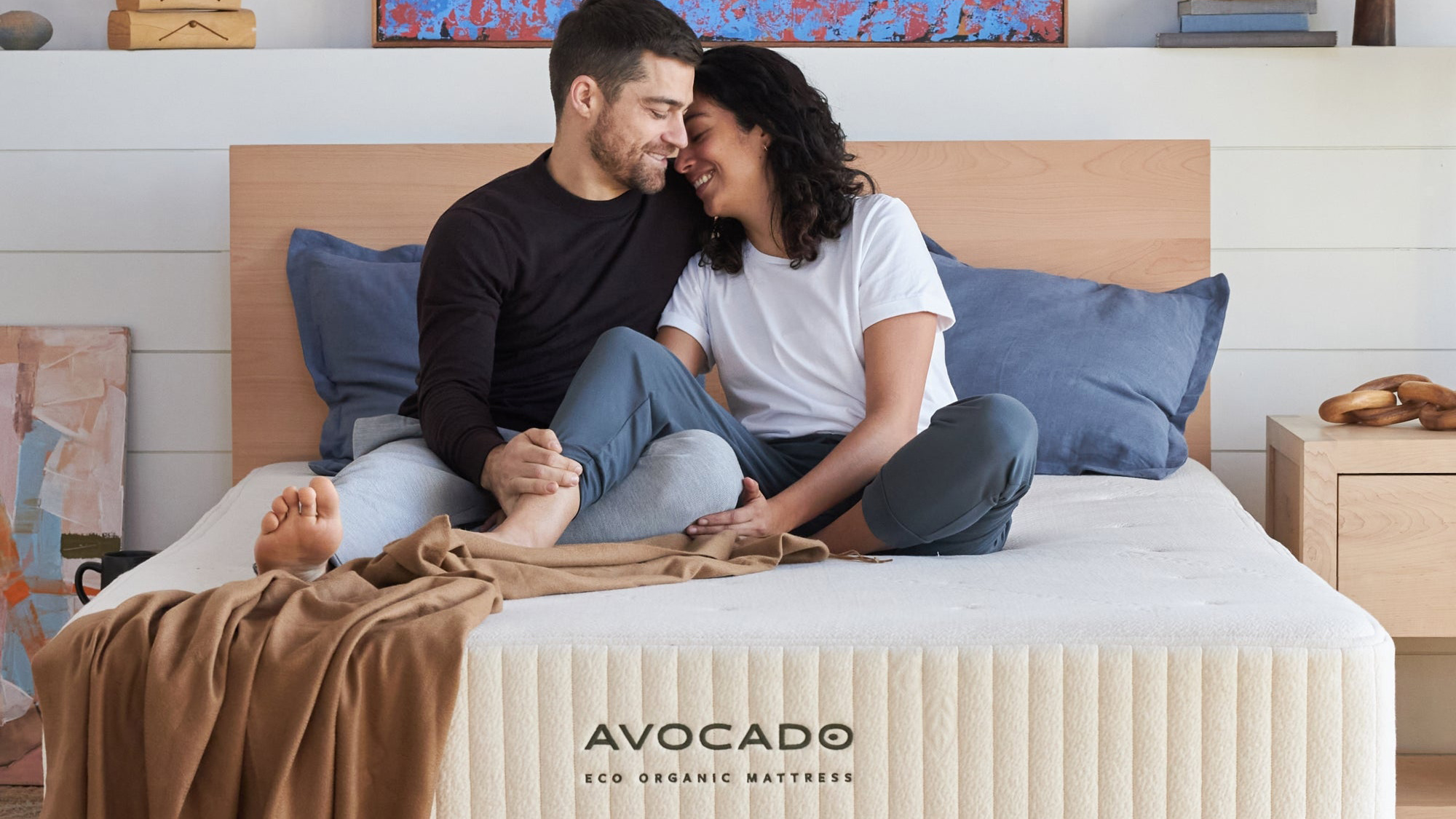
In contrast, a non-toxic mattress will be crafted from non-toxic materials, and will instead rely on natural and organic materials — such as Dunlop or Talalay latex — to deliver comfort, support and safety.
A non-toxic mattress will have relevant certification to prove its non-toxic credentials, including GOTs and CertiPUR-US accreditation. We discuss in finer detail below why these accreditations and others are important when looking for a non-toxic mattress.
Non toxic mattresses: 5 key things to look for
1. GOTS and GOLS organic certification
A mattress doesn’t necessarily have to be organic in order to be non-toxic, but it’s an excellent place to start. The best organic mattresses will contain both GOTS (Global Organic Textile Standard) and GOLS (Global Organic Latex Standard) accreditation, which means that any cotton, wool and latex present within the mattress has been screened by a third party and contains at least 95% organic content, as opposed to being synthetic.
GOTS and GOLS certification also means that it has been tested for potentially hazardous chemicals as well as toxic chemical emissions. And they can help you identify whether your mattress contains actual natural materials or just uses 'green' buzzwords – for example, determining if a mattress contains synthetic latex vs all-natural latex.
2. CertiPUR-US accreditation
CertiPUR-US is a certification given to flexible polyurethane foams often found in mattresses and other soft furnishings. This accreditation proves that the foam included in the mattress meets certain environmental standards and is made without harmful materials such as formaldehyde, mercury, lead and other heavy metals, and is low in VOCs (volatile organic compounds), which can impact indoor air quality.

This certification alone does not mean that the mattress is non-toxic as it only applies to the foam aspect of the mattress, not the entire thing. However, it is a helpful indication of a reputable brand.
It’s important to note that this is a US accreditation, so mattress brands operating out of the US will be unlikely to carry it. It will be listed on their website if a mattress carries CertiPUR-US accreditation, but you can also check the CertiPUR-US website for a full list of participating companies.
3. GREENGUARD certification
Unless your mattress is GOTS and GOLS certified and crafted from 100% natural latex, your mattress foam may instead contain potentially harmful chemicals. If your budget doesn’t quite stretch to an organic mattress, a mattress with GreenGuard certification is the next best thing.
GreenGuard accreditation means that even if the foam included in your mattress is synthetic, it has low VOC emissions, while a GreenGuard Gold certified mattress means it has adhered to even stricter standards.
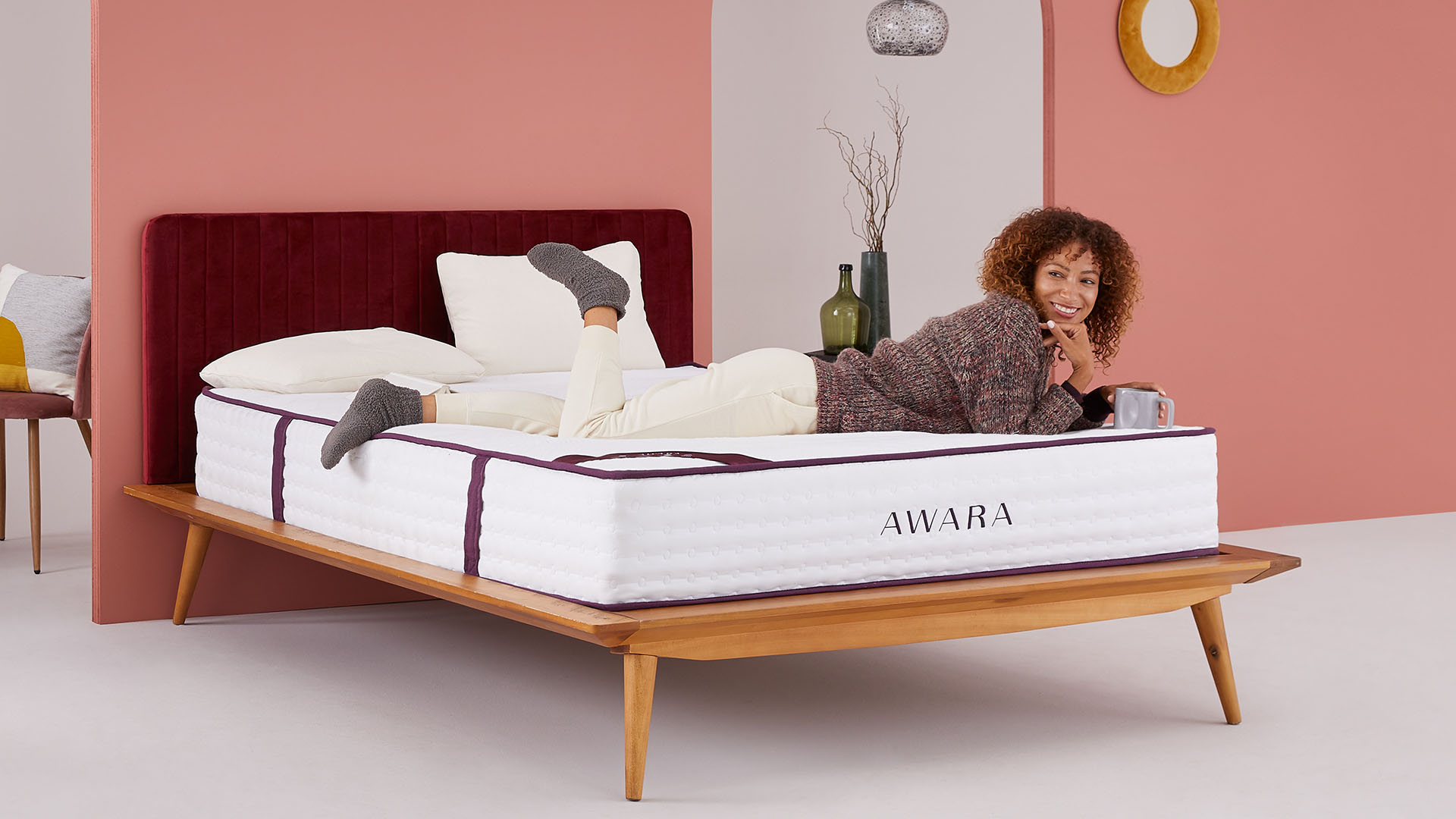
4. Oeko-Tex Standard 100
When a mattress has Oeko-Tex Standard 100 certification, it means that all the textiles included, such as foam, cotton and latex — even down to the thread that’s used — has been tested for up to 350 potentially hazardous chemicals. Like GOTS and GOLS, Oeko-Tex Standard 100 is a third party accreditation, which means that mattress brands have no sway over whether their beds get Oeko-Tex certification or not.
The Awara Natural, one of the best hybrid mattresses for slepers wanting a more eco-friendly bed, is one of few models that has Oeko-Tex Standard 100 certification – see how this mattress fared during testing in our Awara Natural Hybrid mattress review.
5. Fiberglass-free flame retardants
In order to keep costs low, some mattress brands will use potentially hazardous chemicals as a flame retardant within their mattresses. This could be fiberglass (also sometimes referred to as ‘glass wool,’ ‘glass fiber’; and ‘silica’) or other potentially harmful chemical flame retardants. Instead, a non-toxic mattress will use wool or polylactic acid as a flame retardant alternative.
Does a natural mattress mean it's non-toxic?
Natural and organic are terms that are often used interchangeably, but there is a big difference between natural vs organic mattresses. Most notably, a ‘natural’ mattress won’t have GOTS or GOLS certification. While natural beds will rely on natural materials, such as silk or wool, they often do so alongside other synthetic materials, such as foam.
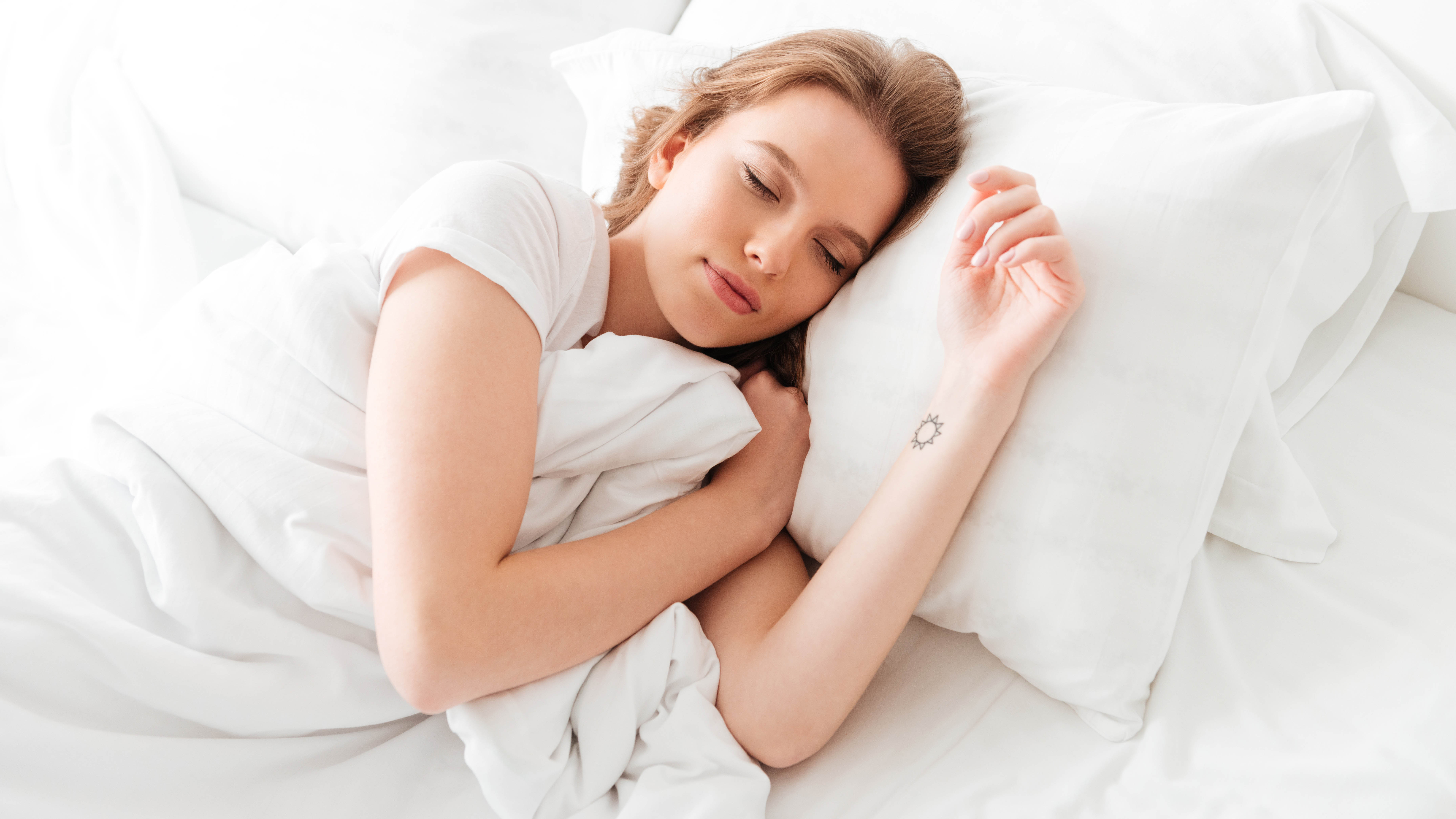
This can result in something called mattress off gassing, which essentially is the chemical smell a new mattress may give off when unwrapped for the first time. Off gassing occurs when volatile organic compounds (VOCs) are released from the product and into your home. While everyone’s sensitivity to smell may differ slightly, a stronger off-gassing smell usually indicates higher levels of VOCs, which are bad news for your health.
So, while a natural mattress likely contains significantly less chemicals than a non-natural mattress, it doesn’t contain the gold seal of non-toxic credentials that an organic mattress with both GOTS and GOLS certification. However, a natural mattress with Oeko-Tex Standard 100 and/or GreenGuard or GreenGuard GOLD accreditation has undergone rigorous chemical testing and is deemed to be non-toxic.
3 best non-toxic mattresses on sale today
Avocado Green Mattress: from $1,399 $1,259 at Avocado
With both GOTS and GOLS certification, the Avocado Green Mattress is certified non-toxic without scrimping on comfort or support - which is why it tops our best organic mattress guide. Heavier back sleepers will glean most support, while the GOTS certified wool keeps temperatures regulated naturally. Right now, you can buy a queen Avocado Green mattress for $1,799 (was $1,999), which is a small saving but it does make the mattress more competitively priced.
Leesa Reserve Mattress: from $2,399 $1,799 at Leesa
The Leesa Reserve Mattress is a brand new addition to Leesa’s impressive sleep suite and is made from GreenGuard Gold certified materials. This doesn’t mean that this mattress is entirely chemical free, but it does mean that it has been shown to emit safe levels of VOC emissions. Currently there’s 25% off the Leesa Reserve, plus you’ll get two free pillows. There’s also a 100-night trial, 10-year warranty and free shipping to your door.
Awara Natural Hybrid mattress: from $1,299 $649 at Awara Sleep
With GREENGUARD Gold and Oeko-Tex certification, the Awara Natural Hybrid mattress contains top-tier non-toxic accreditation at an incredibly competitive price. Right now you can save up to $763 on the Awara Natural Hybrid, with the highest savings gleaned from buying the biggest mattresses. This takes the price of a queen size mattress down to $949, which is the cheapest we've ever seen it. If you need bedding, you can also pick up a bundle at a heavily discounted price with your mattress purchase.
Sign up to get the BEST of Tom's Guide direct to your inbox.
Get instant access to breaking news, the hottest reviews, great deals and helpful tips.

Nicola is the Sleep Editor at Tom’s Guide, where she helps steer the mattress and sleep content published on Tom’s Guide, including our Best Mattress for Back Pain buying guide. With a career in journalism spanning the best part of two decades, Nicola brings experience to the team and the knowledge of what makes a great article, whether that’s a how-to mattress cleaning feature, a deep dive into melatonin gummies, or an in-depth mattress review. As a sleep editor, few better understand how important a decent mattress is to the overall quality of our sleep, and precisely how our sleep impacts our physical and mental health. As well as tackling the vast topic of sleep, Nicola joins the raft of expert mattress specialists at Tom’s Guide, who test and compare a wide range of mattresses in order to guide readers towards the very best options on the market.
